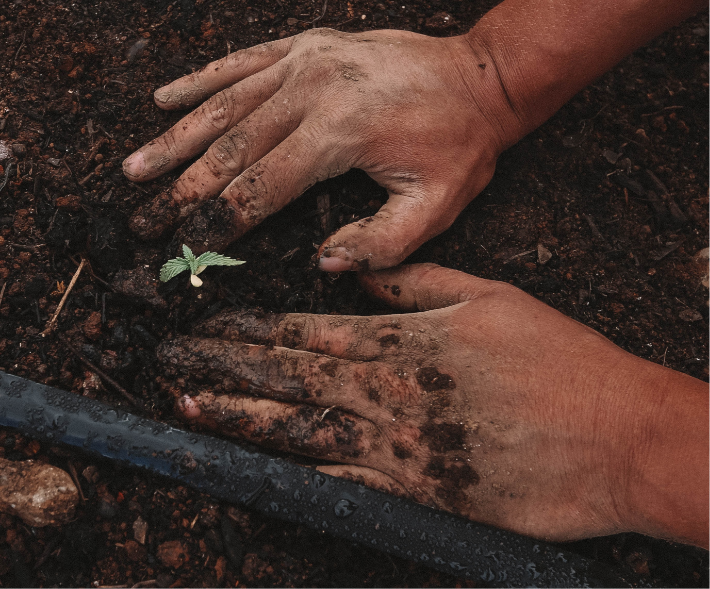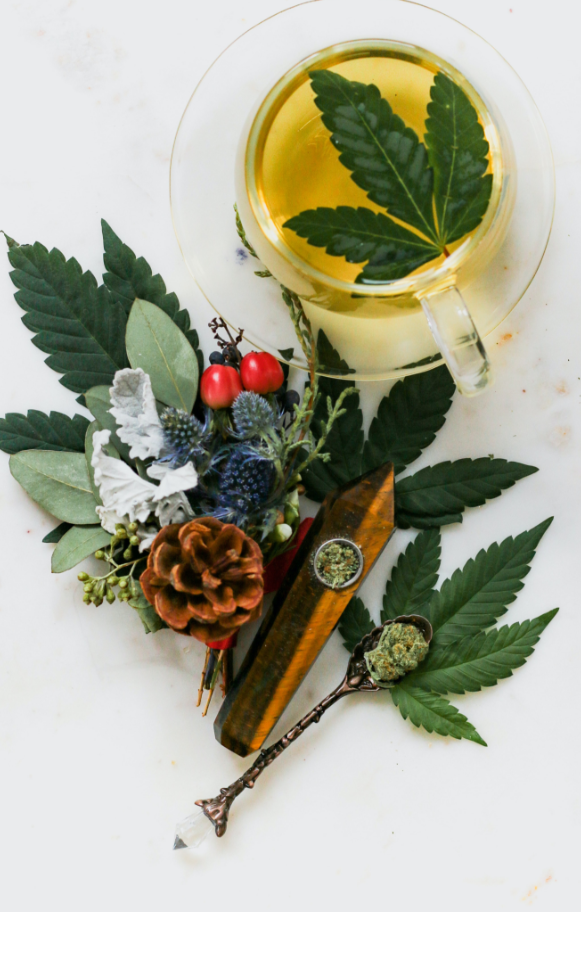
Hemp Sustainability
After lifting the ban on hemp in 2018, around a century of high and lows for hemp sustainability finally seems to show a positive outlook on hemp production. The U.S and many other nations around the world have started to embrace hemp as a sustainable resource that can be a booming industry, just like it had been during World War 2 for the U.S.
It is not only the farmers who are avid to produce the plant and use it for its versatile options, but entrepreneurs and medical researchers are also equally fascinated and keen on its scaling as a product when compared to the plastic products. These plastic polymers, building materials, textile fabrics, woods, biofuels, paper, and even car components are being tested against the adaptable nature of hemp’s sustainable offerings.
Sustainability Analysis
It must be noted that hemp paper dates as far as the 8000 B.C.E. Later in 900, Arabs also used hemp as a paper. As for the car components, Henry Ford built an entire prototype of an automobile from hemp alone as an ingredient. Since the 2000 B.C.E-1500s, hemp has been used as rope and as attire as well. In the 1600s, when the British colonized the Americas, hemp was grown by the farmers to make hemp seed, hemp oil, ropes, and fabric.
Hence, hemp (Cannabis Sativa) has had its historical importance as a medicine when the Chinese in 8000 B.C.E used it as a healing plant, and later the Indians adopted it as a sacred plant of powers as well. The copious uses of hemp throughout history show that there must be something sustainable about the plant and the products it makes.
A product that can be fabric, oil, biofuel, lamp fuel (Abraham Lincoln used hemp for his household lamp fuel), paper, medicine, and fiber; hemp displays its benefits with an outstanding product line. However, with the cheap availability of plastics throughout the world, organic materials like hemp have been kept on the lower end of the spectrum.


Future Potential
With so many offerings from hemp as a complete package, stakeholders are in praise for its positive impact on climate change. They strongly believe that with the usage of hemp, it will not just be humans who will benefit but nature as well. Many companies have already started to offer their hemp products, especially the paper manufacturing units. TreeFreeHemp, an environment-friendly company produces hemp paper, hemp business cards, hemp flyers, hemp posters, CD and DVD covers, custom-guitars, and so many other products possible with just hemp as a raw material.
Hemp is also catching attention in the cosmetic industry, as beauty product companies are considering its usage for an organic outlook on the production and its sustainable future for both the customers and businesses. Plastic, which was previously a rival and main cause of regulation on hemp, is now being manufactured by hemp itself. Plastic polymerization with hemp can provide affordable prices and may potentially challenge the petroleum materials in the market. Technologies are being worked on concurrently to study the production timeline and the overall turnaround of hemp plastic. The first milestone is 50 million pounds of hemp plastic. Although this goal is merely a figure when compared to global plastic production, this beta production phase can be a deciding factor for the future hemp plastic and its potential in the global market.
According to one research by Grand View, the market share of hemp is estimated to grow to 10.5 billion dollars by the year 2025. The main contributors are nutrition hemp and cosmetic hemp product lines. As the positive growth of hemp looks staunch, it is speculated that hemp will be the forerunner in agriculture rather than just a catalyst in the process of crop yields.
(THC). THC is the intoxicating element that causes the dopamine effect, whereas hemp does not possess high levels of THC. However, there are some traces of THC within hemp as well but they are not high enough to label it as a depressant.
(THC). THC is the intoxicating element that causes the dopamine effect, whereas hemp does not possess high levels of THC. However, there are some traces of THC within hemp as well but they are not high enough to label it as a depressant.
Free Of Insects, Disease, Pesticides
As discussed before, hemp production does not need any pesticides. It is a unique plant that is immune to any disease or pests. While cotton, soybeans, and many other crops rely heavily on pesticides, hemp does not need any external aid to boom into a finished product. This cost of pesticide is greatly reduced as it contributes to a major expense during the industrial cultivation of crops. On the environmental side, the negligible usage of pesticides also limits aridity, chemicals, fungicides, and other contamination problems, which lead to infertile soil and destruction of the ecosystem. Insects avoid hemp and that helps it stay safe from any disease which might be swapped as they feast on the crop. This high resilience towards fertilizers, chemicals, and insects makes hemp a sustainable option for a pure organic farming culture. With the application of hemp as a crop as an alternative to the other crops which require all these chemicals and promote the contamination of soils and build-up of diseases, food security and shortages can be reduced greatly. In the industrial sector, the trickle-down effects will further help reduce the overhead costs and provide affordable buying options for the end customer.
Saves Water
Cotton, barley, wheat, especially rice and other major crops used for the industrial output require heavy water consumption. Failing to provide enough water can lead them to poor yields and can lead to lower sales and potent supply. The textile industry relies on cotton as its major raw material. Globally, one-third of the textile industry uses cotton as its major input.
This does not just put mounting pressure on the growth of cotton using chemicals to provide hyper-growth, but it singles out a crop and affects the soil’s fertility. The debilitating side effects on the environment and the water intake make it a marginal cost if environmental damage is taken into the calculation. To picture this in view, consider a t-shirt. A 100% cotton t-shirt takes 2,700 liters of water to be finished as a manufactured product. Hemp offers far less usage of water and helps in conserving the supplementary non-renewable resource. With a lesser area required to grow in full potency and efficient water intake, hemp can help the soil take breaks to maintain its fertile nature.
Final Thoughts
As discussed earlier, hemp is an all-in-one package for industrial, personal, and medical use. From the hemp seeds, CBD oil to the leaves and the residue, everything is recyclable. This is an added convenience and a feature that no other crop offers. As the issue of global warming is mounting its pressure by each day, hemp can be used as an alternative in the industries where its use can help lower costs, provide better yields and conserve the supplemental resources during the manufacturing of a product.
As discussed earlier, hemp is an all-in-one package for industrial, personal, and medical use. From the hemp seeds, CBD oil to the leaves and the residue, everything is recyclable. This is an added convenience and a feature that no other crop offers. As the issue of global warming is mounting its pressure by each day, hemp can be used as an alternative in the industries where its use can help lower costs, provide better yields and conserve the supplemental resources during the manufacturing of a product.
Now, it all depends on the businesses and governments to promote hemp on all major platforms and as a social cause to preserve the ecosystem without changing the current practices of our product intake or disrupting the industrial production levels.
The yield was extracted as either hemp or CBD oil, which is 40% of the Tetrahydrocannabinol (THC) from hemp. Hemp seed, hemp oil, and CBD oil resulted in sales of more than $1 billion in the year 2019 alone. Seeing the potential and efficiency, all states are working towards passing more laws to catalyze hemp production and CBD oil within their jurisdictions if not done quickly on a national level.
However, all is not smooth for this growing industry as the DEA wants to regulate the hemp industry and the CBD industry is being monitored by the Food and Drug Administration (FDA). Apart from the government rigidity, private institutions such as banks, tech companies, and financial payment gateways are not hemp business compliant due to many loopholes and ineffective synergy due to the lacking back up from the state.
But Hemp is on track this time and opportunists, farmers and businesses are confident in its success. As hemp and CBD oil is catching the attention of a savvy entrepreneur and also a normal consumer, the hemp industry is all set to write history again. This time hopefully; it will be in its favor.





